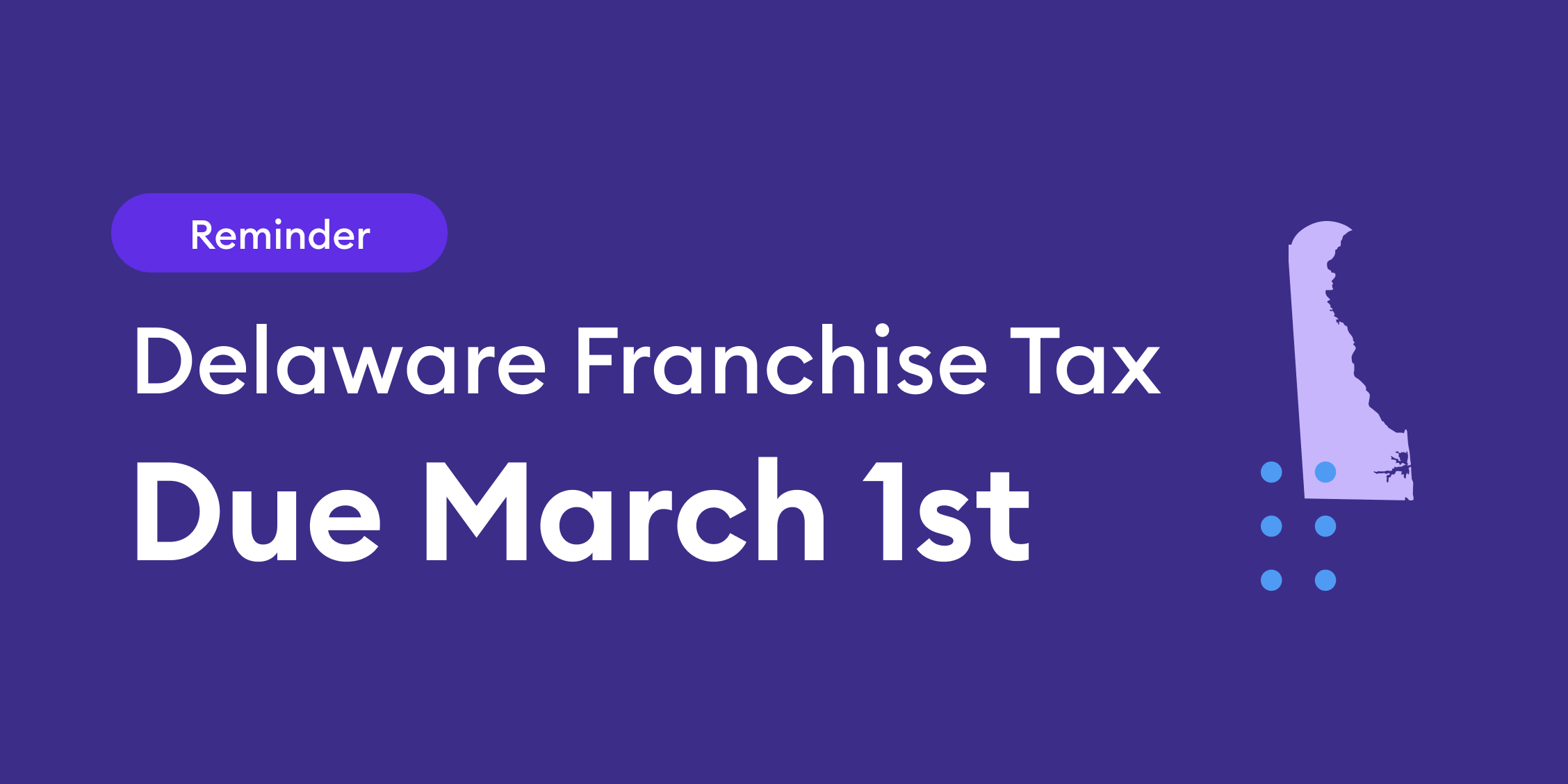How to File Your Delaware Franchise Tax On Time


NEW: Let us take care of preparing the Delaware Franchise Tax filing for you
Get in touch with us before February 26, and we'll prepare the Delaware Franchise Tax filing for you, completely for free. You don't even need to be a Pilot customer.
The annual deadline for Delaware Franchise Tax is March 1. If you still need to take care of yours, don’t lose hope: the process is actually very simple and easy to DIY.
Who needs to pay the Delaware Franchise Tax?
The Delaware franchise tax must be paid by all companies that are incorporated in Delaware, regardless of whether or not you’ve generated any revenue or profit (technically, this filing is the “franchise tax and annual report”).
This means it’s easy to determine if you owe this tax: if your company is incorporated in Delaware, then yes, you need to pay the Delaware franchise tax.
How to pay the Delaware Franchise Tax
If you already have a tax preparer, they might do this for you. It’s a good idea to ask, and many will handle it free of charge (Pilot Tax, for example, will take care of this for you for free).
If you don’t have a tax preparer (or if it’s too last-minute for them to help you with this), here’s how to handle it yourself. The process might look intimidating, but it’s actually very straightforward, and we’ll walk you through the trickiest parts.
Step 1
Visit Delaware’s website for paying the tax, click on “Pay Taxes / File Annual Report,” and enter your information as prompted. If you don’t know your Business Entity File Number, you can search for your company here (but make sure you get it right—you don’t want to accidentally pay someone else’s tax!
Step 2
Click on “File annual report.”
You’ll probably see a large “amount due,” (like, 10K+) but don’t panic. This has unnecessarily freaked out generations of startup founders, and is sort of a rite of passage.
There are two methods to calculate the amount of tax you owe, and you can use whichever one is lower. Those methods are:
- Authorized shares: This bases your tax obligation amount on the total number of shares authorized in your company charter, regardless of the number of actual shares outstanding. For startups, this method tends to result in much higher numbers than using the assumed par value method. (This is the default method used by the Delaware Division of Corporations to calculate your taxes, which is why the initial number is often alarmingly large.)
- Assumed par value: This bases your tax obligation amount on a mix of issued shares and gross assets. For startups and small companies, this method usually results in a much lower tax value. The minimum tax using this method is $400. This is almost certainly the method you’re going to use.
You can learn more about the calculation methods on Delaware’s franchise tax website.
You are almost certainly going to want to use the "Assumed par value" method, so don't panic and keep reading.
.svg)





.svg)
.png)
.png)
.png)
.png)
.png)
.png)